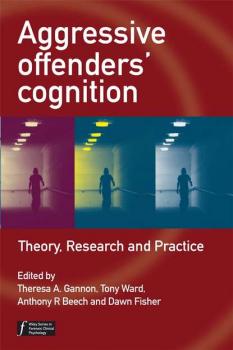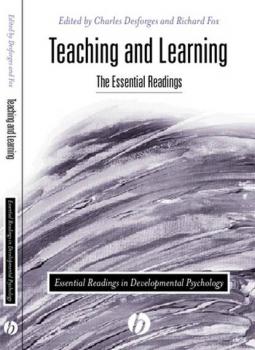Общая психология
Различные книги в жанре Общая психологияAggressive Offenders' Cognition
The book focuses specifically on aggressive offenders and is divided into two parts. Part I deals with sexual abusers whilst Part II is concerned with violent offenders. Each part discusses theory, latest research and treatment related information. Emphasis is placed on discussing cognition in context i.e. identifying the factors impacting upon and related to offenders’ cognition.
Murder and Society
Human psychological and physical well-being is damaged and destroyed when people are deliberately killed by other people. There are millions of primary and secondary victims of murder throughout the world, and human society as a whole is a tertiary victim of murder. Despite this, people are often fascinated and engrossed by stories of homicide and killers. This book provides a fascinating exploration of murder, providing an insight into what leads people to kill and what effect this has on society as a whole. This book is organized into five chapters that each answer a specific question on murder: What is Murder? Who Commits Murder? Why Commit Murder? Why is Murder Devastating? Why is Murder Fascinating?
Offending Behaviour Programmes
Part of the Wiley Series in Forensic Clinical Psychology, Offending Behaviour Programmes: Development, Application and Controversies explores the subject at two levels: the technical issues associated with designing and implementing programs and the broader issues surrounding programs such as the impact on practitioners. Each chapter covers theory, research, practice, and evaluation.
Working with Anger
Client anger is a perennial problem for a range of professionals working in clinical settings. Working with Anger presents an alternative strategy to the most common approach, cognitive behavioural therapy (CBT), exploring instead how anger can be tackled from a personal constructivist perspective. It provides a conceptual framework and practical advice on the clinical issues of working with anger, including case study examples, service user perspective, a philosophical and developmental underpinning, and suggested ways of preventing anger development. Ways of working with anger are illustrated, including: * Group-based treatments * Individual treatment * Working with adults * Working with children and adolescents * Working with families * Gender and anger * Methods of evaluating anger programmes This practical volume will enable clinicians to set up, run and evaluate their own anger programmes using the constructivist approach. It will therefore be a valuable resource for professionals such as clinical and forensic psychologists, psychiatrists, psychotherapists, nurses and social workers.
Teaching and Learning
This is the first collection of key articles on the psychology behind educational attainment. It brings together in one volume for students a set of accessible but influential papers, representing the best classic and cutting edge work in the field.
Money and Meaning
The first book of its kind to introduce a model to help you create conversations about money with your clients, Money and Meaning provides a framework and tools to provide a safe environment in which to have conversations and resolve conflicts. Written by a respected expert in business, financial, and relational issues, Money and Meaning is filled with useful case studies and helps you open the door to thoughtful conversations that explore and resolve money’s multiple meanings.
Obsessive-Compulsive Disorder
Obsessive Compulsive Disorders (OCDs) involve habitual, repetitive behaviours that can be bizarre, disruptive and eventually disabling. They can destroy lives and relationships and are one of the most common of the emotional disorders. The last five years have seen substantive advances in the state of knowledge of all aspects of OCD and this volume brings together many of the recognised leaders in the field to provide a state-of-the-art account of theory, assessment and practice in treatment. A comprehensive text for trainees and practitioners. ? Presents current theories as well as treatment, focusing mainly on Cognitive Therapy methods of treatment ? Covers the assessment, nature and treatment of a wide range of sub-types of OCD ? Written by an international team of experts Part of the renowned Wiley Series in Clinical Psychology
Obsessive-Compulsive Disorder
Obsessive-compulsive disorder is probably the psychiatric disorder for which most significant progress has been made on the last 20 years concerning pharmacologic and psychotherapeutic interventions. A number of studies have shown that OCD is much more prevalent than previously thought, occurring in an estimated 2% of the adult population around the world. A serious discrepancy still exists between research evidence and clinical practice and an update of this evidence and an international debate on it, as provided by this volume, is long overdue. This revised edition provides vital information on a considerably underdiagnosed condition. * Provides accompanying commentaries by an outstanding line up of contributors * Covers developments in diagnosis, therapy, prognosis, economic evaluation and quality improvement * Provides an unbiased and reliable reference point
Memory and Emotion
Memory and Emotion: Interdisciplinary Perspectives is a collection of original articles that explores cutting-edge research in memory and emotion, discussing findings, methodological techniques, and theoretical advances in one of the fastest-growing areas in psychology. contains contributions by leading researchers the field emphasizes cognitive neuroscience, psychopathology, and aging in covering contemporary advances in research on memory and emotion covers many of the current hot topics in the field including: dissociative amnesia and post-traumatic stress disorder; false, recovered and traumatic memories; flashbulb memories; the use of emotional memories in therapy; and the influence of emotion on autobiographical memory.
Minds and Machines
Minds and Machines: Connectionism and Psychological Modeling examines different kinds of models and investigates some of the basic properties of connectionism in the context of synthetic psychology, including detailed accounts of how the internal structure of connectionist networks can be interpreted. Introduces connectionist models as tools that are both synthetic and representational and which can be used as the basis for conducting synthetic psychology. Includes distinctively varied account of modeling, historical overview of the synthetic approach, and unique perspectives on connectionism. Investigates basic properties of connectionism in the context of synthetic psychology, including detailed accounts of how the internal structure can be interpreted. Provides supplementary material online at www.bcp.psych.ualberta.ca/~mike/Book2/ which includes free software for conducting connectionist simulations and instructions for building simple robots.









